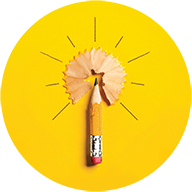On Deeper Learning 2022
I can still feel the sharp pain in my lower back and the cramp in my legs as I stuffed myself into a short-legged chair in the school library for arduous 45-minute faculty meeting after faculty meeting as a 20-something-year-old teacher. In the first half of my career, I experienced this as a teacher and recipient of boring pieces of news or announcements of new compliance initiatives. In the second half, I became the deliverer of these obligatory educational sermons. We know this is not how we want to spend our time. We are already transforming this for kids with engaging project-based learning, expeditionary learning, authentic assessment, and real-world challenges. We have a vision for what school could be for kids. But what could learning look and feel like for adults?
Those who organized, facilitated, and attended Deeper Learning 2022 broke the old rules of adult learning, and all of us in attendance experienced three days of passion (for teaching), wonder (for learning), and curiosity (for what school could be). Deeper Learning 2022 welcomed educators from all over the world. Heather MacDonald, Chelsea McKay, and Bart Flener were three participants we spoke to who had given up precious time away from their schools, classrooms, and students to deepen their knowledge and skill as deeper learning practitioners. Bart recounted to us what typical professional development experiences are like in contrast to DL2022. "Sometimes when you go to a session [at another conference],... you go to four or five breakouts in a day. It is really easy to check out on a couple [of them]."
Heather recounted her time at DL2022 to us in these words: "It's not your typical learning [experience]... We've had to... really go back and have deep discussions about... how could we bring this back and share this with our team at our school... It is very different. It's kind of more of a journey of you learning and I think everybody takes a little something different from it."
While the learning at the DL2022 was fun, engaging, and relevant, it was also a massive commitment from participants to explore their own beliefs, practices, and habits, and, in learning a new way of being, give up old habits and strategies from their past.
The reason DL exists, the reason it is organized, the reason participants come from across the US and internationally is simple: students are owed a shot at real learning. As Executive Director of What School Could Be, I am proud to have partnered with DL2022 to ensure our kids are #FutureReady with relevant skills and dispositions needed to lead and thrive in our changing world. Both DL2022 and What School Could Be know that small steps can create BIG change. Not making these changes to how we educate comes with a much higher price tag than the time we invest in experiences like DL2022.
To succumb to "back to normal" means that kids will continue to be disengaged, that students of color and those from economically disenfranchised backgrounds will continue to disproportionately underperform. It means that we surrender to the irrelevancy of a 130-year-old education system. To succumb to "back to normal" also means burnt-out teachers, school leaders, and staff leaving the profession in numbers never seen before. The price to pay for allowing gravity to pull us back to a possibly comfortable yet obviously ineffective status-quo is too high.
Bart recounted to us his new imperative: "It's for us to take back and model to our team... I think that the idea of showing us what it looks like and feels like is really important... so that we can model it [back at our schools] and see it happens [for our teachers and students.]"
Heather reflected that we need some "rethinking …we as adults, can't handle sitting that long and to expect kids to do [so] is kind of unrealistic... That's not how meaningful learning happens for them either."
The status quo often means boring our students to death. Boring ourselves to death. This year, let’s commit to not doing that.
Kapono Ciotti, PhD
Executive Director, What School Could Be
Looking for one small step?
Join us for the first inaugural What School Could Be Summit August 1-3.
Try a project on the Deeper Learning Hub. Even better? Attend Deeper Learning Twin Cities, June 10-11.




